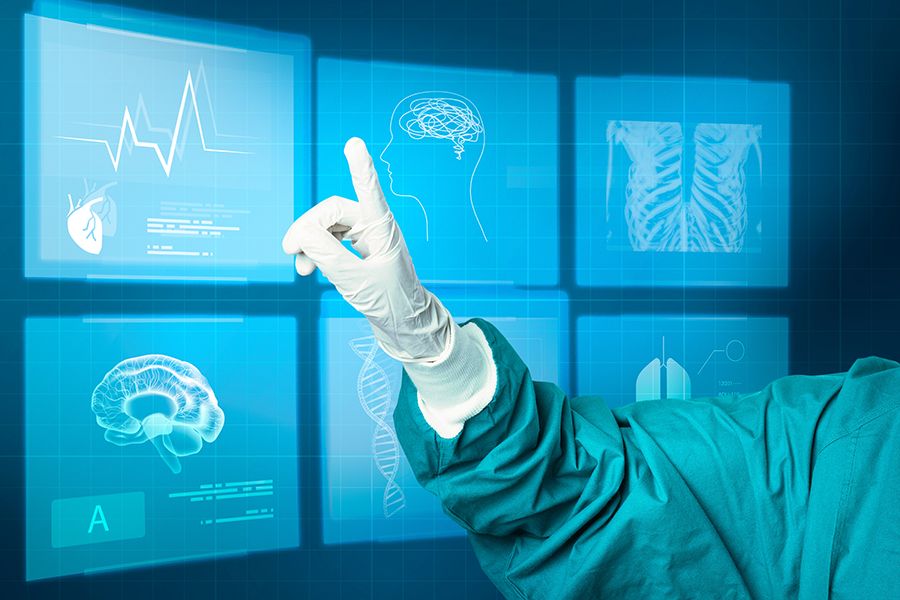Our well-being is being transformed by technology in the fast-paced and ever-evolving world of healthcare. Health technology, a field that combines healthcare and technology, has revolutionized medical care, patient care, and overall wellness. Marketing automation is one of the key technologies shaping health tech. Here we look at how marketing automation is reshaping health tech and revolutionizing health care.
Automation, with its advanced tools and capabilities, can revolutionize healthcare. Personalized patient experiences, streamline processes, and data-driven insights are all examples of how marketing automation is reshaping health tech. Health tech platforms can improve patient engagement, optimize operational efficiency, and deliver targeted, personalized healthcare.
Here’s how marketing automation is transforming health tech. Using real-life examples, we’ll explore how health tech platforms are automating patient onboarding and engagement, delivering tailor-made treatment plans, enabling real-time health monitoring, and streamlining telemedicine.
Patient Onboarding and Appointment Reminders
Marketing automation streamlines patient onboarding processes and keeps patients informed about their appointments. By automating the collection of patient information, consent forms, and insurance verification, health tech platforms can deliver a seamless onboarding experience for new patients. Furthermore, automation lets health tech platforms remind patients about appointments, reducing no-show rates.
Example
A telehealth platform utilizes marketing automation to streamline patient onboarding. Whenever a new patient signs up for the platform, they get an automated welcome email with important information, including how to set up their patient profile, schedule appointments, and access virtual consultations. The email may also include links to educational resources, so patients can take full advantage of the platform. Additionally, the platform sends automated appointment reminders via email or SMS to make sure patients don’t miss their appointments. Besides improving patient engagement, this automation also increases operational efficiency.
Health Education and Patient Engagement Automation
Using marketing automation, health tech platforms can deliver targeted health education content and engage patients. Health tech platforms can help keep patients informed, involved, and empowered by automating the delivery of educational resources, tips, and reminders. Additionally, platforms can segment patients based on their health conditions, preferences, or demographics, delivering personalized educational content.
Example
A health tracking app leverages marketing automation to engage and educate its users. Based on the user’s health goals and tracked data, the app sends personalized health tips and educational content. The app can send reminders to measure blood pressure regularly, along with educational content on managing hypertension, if a user monitors their blood pressure. Depending on the user’s health interests, the app may also provide updates on the latest research. This app automates health education, encourages healthier behaviors, and empowers individuals to take control of their health.
Personalized Treatment Plans and Follow-ups
Health tech platforms can deliver personalized treatment plans and automate follow-up communications with patients with marketing automation. With the help of patient data, health conditions, and treatment preferences, platforms can create customized treatment plans. Follow-up communications can be automated based on predefined intervals or milestones, making sure patients get reminders, progress updates, and instructions on how to keep going.
Example
Patients managing chronic conditions can get personalized treatment plans and follow-ups through a digital health platform. The platform analyzes a patient’s health data and creates a personalized treatment plan based on their needs. Patients get step-by-step instructions, medication reminders, and lifestyle recommendations from the platform. Furthermore, follow-up emails are sent periodically to check on the patient’s progress, address any concerns, and provide additional guidance. Improved adherence to treatment plans, proactive healthcare management, and better health outcomes come from this automation.

Hand in medical glove pointing to virtual screen medical technology
Real-Time Health Monitoring and Alerts
Real-time health monitoring and timely alerts are key components of marketing automation. Health tech platforms can integrate with wearables or IoT-enabled health trackers to collect and analyze patient health data. When certain health parameters deviate from normal ranges or when critical events happen, automated alerts and notifications can be set up so patients can take action right away.
Example
An automated remote patient monitoring system tracks and alerts patients about critical events. Wearable devices monitor vital signs like heart rate, blood glucose, and oxygen saturation. The system alerts the patient’s mobile device when abnormal readings are detected, so they know what to do. As an example, if a diabetic patient’s blood sugar levels rise dangerously, an automated alert is sent to remind him or her to correct the situation. Patient safety is improved, early intervention is possible, and individuals are empowered to take control of their health.
Telemedicine and Virtual Consultation Management
Within health tech platforms, marketing automation facilitates telemedicine and manages virtual consultations. Automation enables seamless scheduling, communication, and coordination between healthcare providers and patients. Using it, patients can book virtual appointments from the comfort of their own homes. By automating reminders, sending pre-appointment instructions, and facilitating secure video conferencing, automation helps manage virtual consultations.
Example
A telemedicine platform uses marketing automation to manage virtual consultations. Whenever a patient requests an appointment, the platform’s automated system offers available times based on the patient’s preferences and the provider’s availability. As soon as the appointment is confirmed, the system sends the patient a confirmation email or SMS, along with instructions for joining the virtual consultation. Automated reminders are sent before the appointment to make sure patients are ready. It can also automate post-consultation feedback forms and follow-up reminders, allowing for continuous care. It streamlines the telemedicine process, enhances patient-provider communication, and makes healthcare more convenient and efficient.
Usermost
The health tech industry can greatly benefit from Usermost, a leading marketing automation platform. With Usermost, health tech platforms can optimize their marketing efforts, improve patient engagement, and streamline operations. With Usermost, health tech platforms can deliver personalized and targeted communication to patients, making sure they get relevant information, appointment reminders, and health education. Platforms can tailor messages based on patients’ demographics, health conditions, and preferences with Usermost’s advanced segmentation and automation. Furthermore, Usermost’s automation tools simplify processes such as patient onboarding, appointment scheduling, and follow-up communications, so health tech platforms can deliver seamless and efficient patient experiences. Utilizing Usermost, health tech platforms can leverage data-driven insights, automate repetitive tasks, and enhance patient experiences, ultimately revolutionizing the way healthcare is delivered and experienced.
